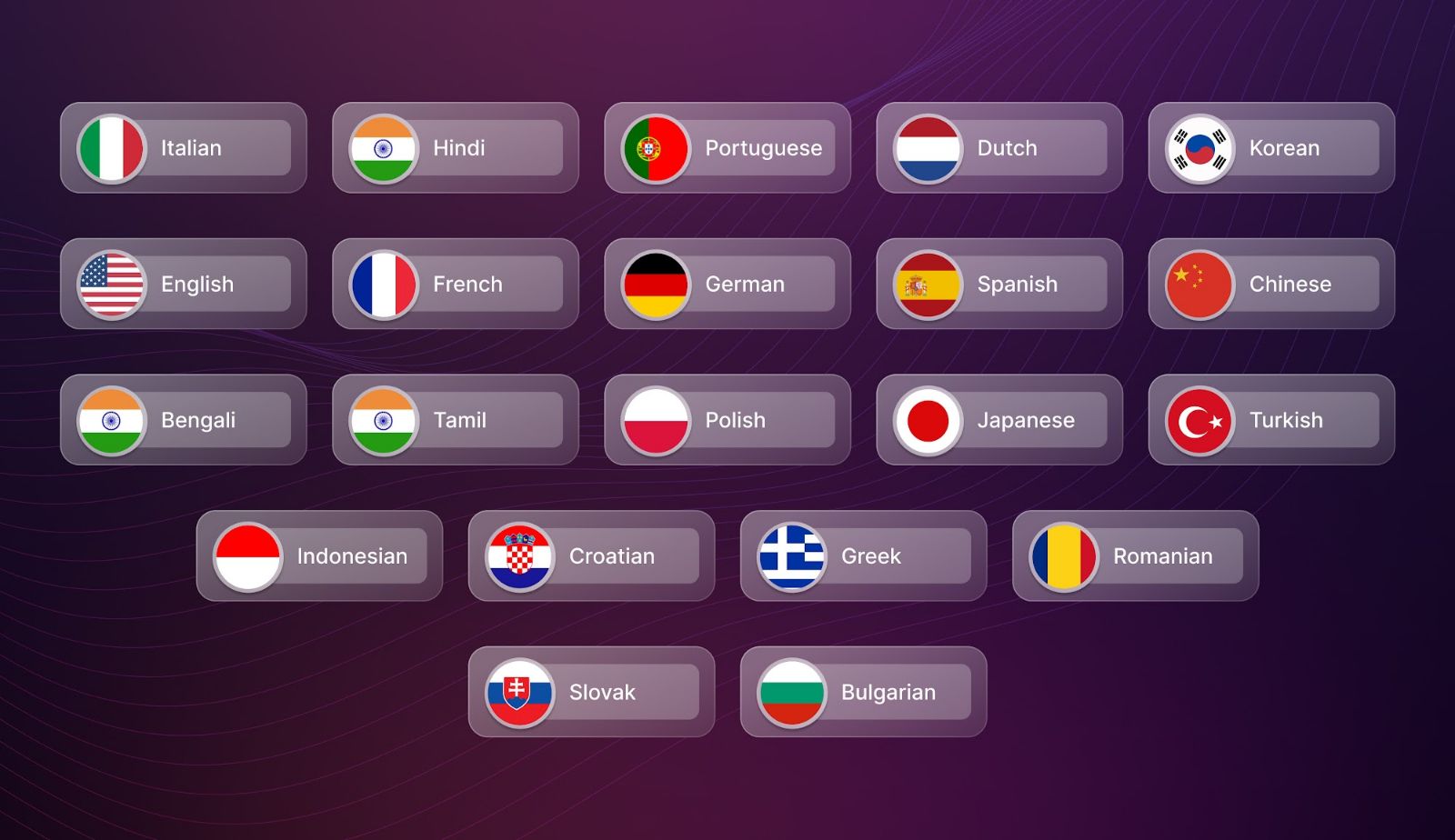- Overview
- Installation
- Getting Started
- Features
- Asynchronous Usage
- Exception Handling
- Advanced Configuration
- Contributing
- License
The Murf Python SDK offers seamless integration with the Murf AI text-to-speech software, enabling developers and creators to convert text into lifelike speech effortlessly. With over 130 natural-sounding voices across 21 languages and 20+ speaking styles, Murf provides unparalleled speech customization for a wide range of applications. The SDK is designed for both synchronous and asynchronous workflows, featuring robust error handling, advanced configuration options, and support for real-time applications.
Check out the HTTP API documentation.
Install the SDK using pip:
pip install murfHere's a quick example to get you started with the Murf SDK:
from murf import Murf
client = Murf(
api_key="YOUR_API_KEY",
)
client.text_to_speech.generate(
format="MP3",
sample_rate=44100.0,
text="Hello, world!",
voice_id="en-US-natalie",
)For more detailed information, refer to the official documentation.
- Text-to-Speech Conversion: Transform text into natural-sounding speech.
- Multilingual Support: Access voices in over 21 languages, including English, French, German, Spanish, Italian, Hindi, Portuguese, Dutch, Korean, Chinese (Mandarin), Bengali, Tamil, Polish, Japanese, Turkish, Indonesian, Croatian, Greek, Romanian, Slovak, and Bulgarian.
- Multiple Voice Styles: Choose from 20+ speaking styles to suit your application's needs.
- Advanced Voice Customization: Adjust parameters like pitch, speed, pauses, and pronunciation for optimal output. Fine-grained controls let you tailor the voice output to match your specific requirements.
- Multiple Audio Formats: Generate audio in various formats (e.g., MP3, WAV) with configurable sample rates for optimal quality.
- Real-Time Processing: Benefit from asynchronous API calls that support non-blocking, real-time audio generation and streaming scenarios.
The SDK also exports an async client so that you can make non-blocking calls to our API.
import asyncio
from murf import AsyncMurf
client = AsyncMurf(
api_key="YOUR_API_KEY",
)
async def main() -> None:
await client.text_to_speech.generate(
format="MP3",
sample_rate=44100.0,
text="Hello, world!",
voice_id="en-US-natalie",
)
asyncio.run(main())When the API returns a non-success status code (4xx or 5xx response), a subclass of the following error will be thrown.
from murf.core.api_error import ApiError
try:
client.text_to_speech.generate(...)
except ApiError as e:
print(e.status_code)
print(e.body)The SDK is instrumented with automatic retries with exponential backoff. A request will be retried as long as the request is deemed retriable and the number of retry attempts has not grown larger than the configured retry limit (default: 2).
A request is deemed retriable when any of the following HTTP status codes is returned:
Use the max_retries request option to configure this behavior.
client.text_to_speech.generate(..., request_options={
"max_retries": 1
})The SDK defaults to a 60 second timeout. You can configure this with a timeout option at the client or request level.
from murf import Murf
client = Murf(
...,
timeout=20.0,
)
# Override timeout for a specific method
client.text_to_speech.generate(..., request_options={
"timeout_in_seconds": 1
})You can override the httpx client to customize it for your use-case. Some common use-cases include support for proxies
and transports.
import httpx
from murf import Murf
client = Murf(
...,
httpx_client=httpx.Client(
proxies="http://my.test.proxy.example.com",
transport=httpx.HTTPTransport(local_address="0.0.0.0"),
),
)We welcome contributions to enhance the Murf Python SDK. Please note that this library is generated programmatically, so direct modifications may be overwritten. We suggest opening an issue first to discuss your ideas or improvements. Contributions to the documentation are especially appreciated! For any support queries email to support@murf.ai
Murf Python SDK is released under the MIT License.



